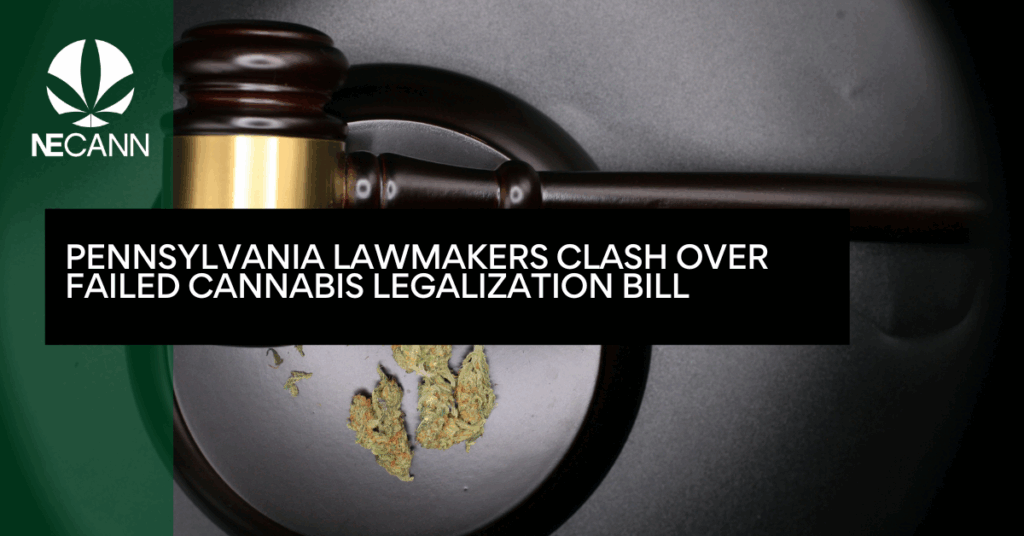Tensions are escalating among Pennsylvania lawmakers following the Senate’s rejection of a House-passed bill that would have legalized marijuana sales through state-run stores. The failed effort has prompted public criticism and political posturing from both chambers, even as support for legalization continues to grow among voters.
The bill, sponsored by Reps. Dan Frankel (D) and Rick Krajewski (D), was defeated in the Senate Law and Justice Committee earlier this week, sparking a war of words between supporters in the House and skeptical Senate Republicans. Frankel voiced frustration, pointing out that the Republican-controlled Senate has blocked forward momentum. “Republicans have had control of the Senate for 30 years, and the first time they bring up a cannabis legalization bill, it’s to vote it down,” he said.
Senator Dan Laughlin (R), committee chair and a legalization advocate himself, countered that the House bill was a political stunt rather than a viable policy solution. “It’s a fact, not an opinion. The House’s advancement of HB 1200 to the Senate wasn’t a genuine legalization effort but political theater,” Laughlin wrote on X, formerly Twitter. He emphasized the need for bipartisan cooperation and claimed no outreach was made to his office for collaboration.
Laughlin criticized the state-controlled sales model in the bill, warning it would limit consumer choice and push buyers to neighboring states with private cannabis markets like Maryland and New Jersey. “The state, acting as a buyer, will limit consumer choice and drive consumers out of state,” he said. He remains committed to a cannabis reform plan that can actually pass the Senate and be signed into law.
Krajewski, meanwhile, argued the Senate had a responsibility to present its own version if the House proposal was not satisfactory. “If the Senate was serious about passing a cannabis bill, they would have sent us one,” he said, calling HB 1200 a starting point for negotiation.
While Governor Josh Shapiro (D) supports adult-use marijuana legalization, he has not endorsed a specific sales model. A recent poll suggests voters also prefer a privately licensed sales system rather than state-run stores.
Rep. Abby Major (R), who is preparing an alternative legalization bill with Rep. Emily Kinkead (D), stated her opposition to the House bill, advocating instead for a traditional retail approach. “A state-run model isn’t the right fit for Pennsylvania,” she said during the House floor debate.
Despite Democratic control of the House and governorship, any cannabis reform must clear the GOP-controlled Senate, where divisions within both parties—and a lack of consensus—continue to stall progress.
Senate Majority Leader Joe Pittman (R) acknowledged the political gridlock, stating he hasn’t seen “consensus between the four caucuses and the governor” to prioritize marijuana reform.
Support for legalization in the state continues to grow, with opposition dropping significantly over the past decade. Advocates like Kinkead argue legalization would improve public safety by eliminating dangerous, unregulated products from the illicit market.
Meanwhile, other efforts related to cannabis policy are still in motion. The House recently passed a bill to strengthen oversight of the state’s medical marijuana program, while additional legislation has been introduced to give small farmers access to adult-use sales channels if legalization proceeds.
An independent state agency also projects that adult-use cannabis could bring in more tax revenue than Governor Shapiro’s estimates, though differences over licensing models continue to influence financial forecasts.
As legislative sessions continue, the future of cannabis reform in Pennsylvania remains uncertain—mired in partisan tensions and conflicting visions, even amid rising public support.
Stay up to date on industry news — subscribe to NECANN’s newsletter.



